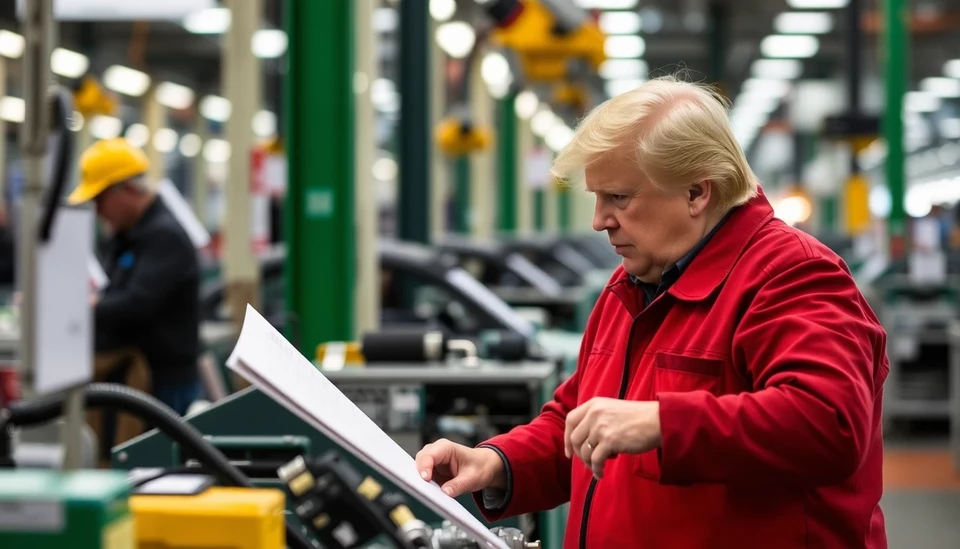
In a significant development for Germany’s economic landscape, new data has revealed that factory orders in the country remained unchanged in the most recent reporting month. This stagnation comes just as industries brace for the potential impact of looming tariffs proposed by U.S. President Donald Trump, which could shake global trade dynamics.
The figures, released by the Federal Statistical Office, indicate that while manufacturers continue to experience a stable environment for orders, the absence of growth could suggest underlying challenges within the German economy. Analysts had anticipated a slight increase in factory orders, thus making the unchanged figures somewhat surprising and indicative of a slowing momentum.
With international markets facing heightened uncertainty due to trade tensions, the timing of Trump's impending tariff strategy has raised concerns among German exporters, particularly in the automobile and machinery sectors, which are significantly reliant on trade with the United States.
Industry experts warn that any shifts from the U.S. government could directly affect demand for German manufactured goods, pushing companies to reconsider their production strategies. As tariffs create barriers to trade, manufacturers may face increased costs, potentially leading to adjustments in pricing and production volume.
As such, many businesses are now gearing up for this expected tariff salvo. Companies are keenly observing developments and strategizing to mitigate any adverse impacts that Trump’s tariff policies may bring. This scenario underscores the delicate balance between maintaining production levels and navigating the intricacies of international trade relationships.
Germany's economy, the largest in Europe, is a pivotal player in global manufacturing. Thus, any significant disruptions could have a ripple effect, not just on German industries, but across Europe and beyond. As the situation evolves, market watchers will closely monitor how both domestic and international factors influence future factory orders.
The economic landscape remains fraught with uncertainty, but the stability in factory orders may provide a glimmer of hope amidst challenging trade negotiations. While manufacturers prepare for potential turbulence, the focus will undoubtedly remain on adapting to the changing tides of global commerce.
As we look forward, the implications of U.S. trade policies will continue to be a key consideration for German economic stakeholders, who must navigate these developments carefully to sustain growth and maintain their competitive edge.
#Germany #FactoryOrders #Trade #Tariffs #Trump #Economy #Manufacturing #GlobalTrade
Author: Rachel Greene




